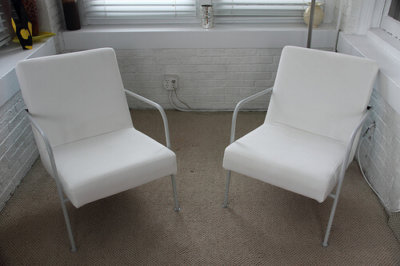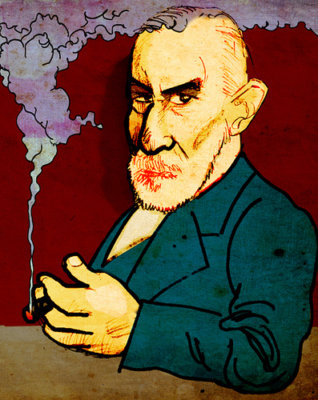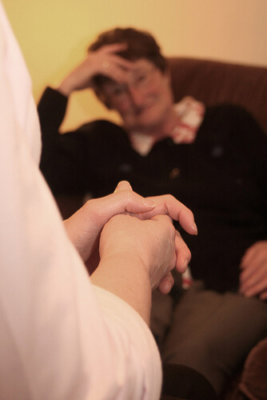What is the Therapeutic Alliance and Why is it Important?

By: Daniel X. O’Neil
by Andrea M. Darcy
The ‘therapeutic alliance’, also called the ‘therapeutic relationship’, is how you and a therapist connect, behave, and engage with each other.
Some sum this up by saying the therapeutic alliance is the ‘bond’ that develops in the therapy room.
Nowadays, the therapeutic alliance is seen by most forms of counselling and psychotherapy as one of the main tools for achieving positive change in the lives of clients. The ability to develop a good therapeutic relationship with clients is focussed on in training as an essential professional skill.
Why is the therapeutic relationship so important?
Just think about any relationship, such as ones between family, friends, or colleagues. If you trust others, you can truly be yourself around them, and tend to learn and grow more around them as you are relaxed. All of which is, of course, useful in the therapy room.
And yet many who seek therapy actually don’t trust or feel comfortable around others, even family and friends. We come from upbringings where we did not have the chance to be loved for being ourselves or to rely on others. hence we end up needing support in the first place.
And that’s why the therapeutic relationship can be not just valuable, but might be the most powerful part of therapy of all – it offers a chance to finally experience what healthy relating actually is. For the first time, you can drop the mask and the games and feel safe just being who you are, and learn what a trusting, authentic relationship feels like.
In summary, the therapeutic relationship can be a container to:
- learn what a trusting relationship feels like.
- try new ways of relating in a safe space.
- be your authentic self without having to impress or please someone.
- share things with someone who is impartial and wants the best for you.
But aren’t therapists aloof? (A brief history of the therapeutic alliance)

By: aeneastudio
If you had an idea of a therapist as an aloof doctor, nodding and taking notes as a ‘patient’ sprawls on a couch, you would be in good company. It’s a cliche as old as photos of Freud himself, frowning and bespectacled.
Freud did believe in keeping patients at arm’s length. He felt that a patient’s desire for a relationship was ‘transference‘ (when patients project repressed wishes from the past onto the therapist) and it was best to stay rational and “maintain a professional distance at all times”.
But in his later life Freud actually questioned this theory, considering the possibilities of a beneficial attachment between therapist and patient, instead of delegating any attempt at connecting as projection.
Jung, Freud’s main competitor, was more open with patients than Freud, feeling he should freely share his thoughts and feelings with them. It was after all Jung who said, ‘the meeting of two personalities is like contact of two chemical substances. If there is any reaction, both are transformed”.
But it wasn’t until Carl Rogers, the founder of humanistic or ‘person-centred’ therapy, came along, that therapy’s actual capacity to produce beneficial results was connected directly to the relationship a therapist fostered.
Person-centred therapy recognised that better results were gained if a therapist was empathic, genuine (called ‘congruent’), and truly believed in their clients (called ‘unconditional positive regard‘).
(Note the use of ‘client’ – it was also humanistic therapy who made the move away from the unfriendly term ‘patients’.)
Since humanistic therapy and its theories came along, the therapeutic alliance has been focussed on by all forms of counselling and psychotherapy as an essential focus.

By: Alan Cleaver
The elements of the therapeutic alliance – it’s not a one way street!
As a client you will have a different view of what is important in the client-therapist relationship compared to what your therapist will hope for. You might seek a therapist who is:
- understanding and able to ‘connect’
- a good listener
- empathic
- trustworthy
- experienced and skilled
- warm (or the right level of warmth for you)
Your therapist might, however, be looking for the following in your relationship:
- that you can agree on how the therapy can progress
- that you can work collaboratively
- that you show up and actively participate.
So a good therapeutic alliance will involve all these factors, and doesn’t just rely on the therapist but also on you as a client to do your part.
What does research have to say about the therapeutic relationship?
There is by now a huge body of research around the positive affects of the therapeutic alliance. A comprehensive 2011 overview of previous studies on the subject found that “the quality of the client–therapist alliance is a reliable predictor of positive clinical outcome independent of the variety of psychotherapy approaches and outcome measures.”
One of the most recent studies in 2014 looked at the affect of a good therapeutic alliance on clients seeking help for dissociative disorders, showing it resulted in less distress and PTSD symptoms . A worry about previous studies on the therapeutic relationship is that results were therapist-led, but in this study, it was the clients who ranked the therapeutic alliance as effective even more so than the therapists involved.
I would like a therapy that really focuses on the therapeutic relationship
Some modern forms of therapy now make the therapeutic relationship a central aspect and focus on it as a main tool of transformation.
These include:
So how to find a good therapeutic alliance, then?
It’s important to keep in mind that therapists are people, and who suits you is unique to you. In this way finding a good therapist is a bit like dating. You might have to consult with a few first until you find the right ‘click’.
If in doubt, keep in mind Carl Rogers’ three main components a good therapeutic alliance – empathy, congruence, and unconditional positive regard. In other words,
- Is the therapist supportive and understanding?
- Is the therapist genuine and themselves over pretending to be a ‘guru’?
- Do they see your value as a person?
If so, stick it out and see where the relationship takes you.
Do you have a story to share with our audience about your experience of the therapeutic alliance? Do so below.
Andrea M. Darcy is a health and wellbeing writer as well as mentor, trained in person-centred counselling and coaching. She often writes about trauma, relationships, and ADHD. Find her on Instagram @am_darcy





Therapy was the worst experience of my adult life. The one I hired mocked me, humiliated me, refused to explain the point of her questions, refused to explain how it worked, and had at best a less than nodding acquaintance with ethics. Therapy seems more like a scam and therapists are charlatans and grifters. I despised the experience.
Hi Sam, we aren’t surprised, that sounds terrible. Was she qualified and registered? (would be surprising as this sort of behaviour is not approved). If so, you can report her to the body she is registered with and they will look into it. Saying all therapy is a scam and all therapists are grifters is a huge assumption though. It’s like going to get your car fixed, it not working out, and deciding all people who fix cars are charlatans and never getting your car fixed again. Being a therapist is a job. Therapists are people. In every single occupation you come across, there are some people who aren’t suited to the job, even if, like therapy, they do 4 to 7 years of very expensive education (any registered therapist is far from a charlatan, it’s hardly a route to being rich these days, more a vocational calling and a route to a lot of student debt). If you don’t like a therapist, and after a few sessions it hasn’t worked out, it’s up to you to then stop working with a therapist and find one that is a fit. Just like you would not keep going to a dentist or doctor you don’t like but would seek out one you did. Of course when we show up at therapy we generally are there as life hasn’t worked out and we are feeling vulnerable and powerless, and we can go into that ‘hairdresser effect’ sort of thing, where we know we should speak up and do something, but we feel like we can’t. So the challenge becomes remembering you are the client, doing the hiring, it’s up to you to speak up and stay or leave as you like. In summary, it’s your life, you don’t ever have to go to therapy again, each to their own! But we suspect as you are on here researching, you are still wanting help. We’d say do some good research this time. We have many articles on here on how to find the right therapist for you, including our guide to finding a therapist here in the UK http://bit.ly/findgoodtherapist. If you find you get to a session and can’t speak your mind, then write things down in advance that you want to say and ask, you can always just show the therapist the list or letter.Best, HT.
Of course the woman was licensed. I do like how the default from therapists is to blame the client. I will never hire another one.